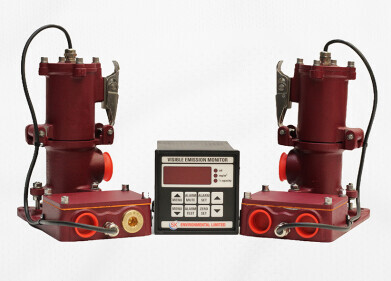Air Monitoring
Insight Into Climate Change...
Nov 19 2010
A Model CE440 Elemental Analyser from Exeter Analytical is being used by one of the world’s leading environmental research centres, British Antarctic Survey (www.antarctica.ac.uk), in its climate change research on lake and ocean sediments.
British Antarctic Survey commented "We have used CHN/O/S Elemental Analysers from Exeter Analytical for some years and initially chose the system due to its unique horizontal furnace design which made it ideal for the analysis of our sample types. One of our recent applications for the CE440 Elemental Analyser is sediment cores, laid down over periods of thousands of years, collected from lake and ocean environments because they contain a wealth of organic and inorganic remains from which it is possible to reconstruct past environmental and climate changes. Measurements of total organic carbon accumulation rates provide an index of past biological production which is often a function of temperature, and measurements of carbon to nitrogen ratios (C:N) combined with independent measurements of the carbon stable isotopes provide a diagnostic tool for identifying the sources of the organic matter. These standard measurements underlie many of the subsequent analyses conducted on the cores".
Paul Hemming, European Sales Manager for Exeter Analytical said "With its wide linear range, proprietary combustion technology and horizontal furnace design allowing for removal of residues between runs, the Exeter Analytical CE440 Elemental Analyser is uniquely suited to accurately analysing complex materials such as soils and sediment samples". He added "We are proud that one of our analysers forms part of the vital ongoing programme of research being undertaken by staff at British Antarctic Survey".
British Antarctic Survey (BAS) has a long and distinguished history of carrying out research and surveys in the Antarctic and surrounding regions, undertaking most of the British research on the frozen continent. The close linking of its science programmes with essential logistics support makes them very effective in carrying out the complicated and sophisticated scientific field programmes that are necessary today. The current BAS science research strategy is called Polar Science for Planet Earth (PSPE). The strategy was based on proposals from staff and consists of 6 integrated programmes. In addition the competitive Antarctic Funding Initiative (AFI) provides access to Antarctica for BAS and NERC staff and the UK university community.
As a company dedicated to elemental microanalysis, Exeter Analytical’s nearly 30 years of involvement with instruments, consumables and supplies has allowed them to better understand the whole problem facing microanalysts. As a consequence whether you are a regular or an occasional purchaser - experienced and knowledgeable staff are always available to provide free informed advice.
Digital Edition
IET 34.2 March 2024
April 2024
Gas Detection - Biogas batch fermentation system for laboratory use with automatic gas analysis in real time Water/Wastewater - Upcycling sensors for sustainable nature management - Prist...
View all digital editions
Events
May 03 2024 Seoul, South Korea
May 05 2024 Seville, Spain
May 06 2024 Minneapolis, MN, USA
May 13 2024 Munich, Germany
May 15 2024 Lund, Sweden


















